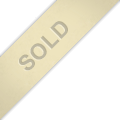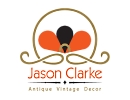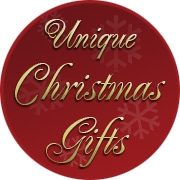Contact Seller
Jason Clarke Antiques
Tel07815 046645Please quote Antiques Atlas.


 19th c Painted Sea Chest Becketts With Hearts
19th c Painted Sea Chest Becketts With Hearts
 Lignum Vitae Nautical Dead Eye on custom stand
Lignum Vitae Nautical Dead Eye on custom stand
 RUBIO’s Bar Top Oak Special Amontillado Sherry Barrel
RUBIO’s Bar Top Oak Special Amontillado Sherry Barrel
 Model Of A Racing Yacht
Model Of A Racing Yacht
 Fine 19th Century Naval Silk Work Embroidery
Fine 19th Century Naval Silk Work Embroidery
 Large 19th century Pond Yach
Large 19th century Pond Yach
 Cased scale model of the Scottish two masted schooner
Cased scale model of the Scottish two masted schooner
 Large Model Ships Hull
Large Model Ships Hull
 Hand Blown Glass Model Ship In A Bottle.
Hand Blown Glass Model Ship In A Bottle.
 Antique Original Ships Wheel
Antique Original Ships Wheel
 Large Scale Early 20th Century Ship Model
Large Scale Early 20th Century Ship Model
 A Superb Cooke & Son ships brass binnacle
A Superb Cooke & Son ships brass binnacle
Non UK callers :
+44 7815 046645
Early Victorian Pocket Sextant by Horne & Co


For sale, an early Victorian boxed sextant by Horne & Co of Newgate Street, London with original case.
This fine instrument is enclosed under a substantial brass protective lid with brass knurled edge to assist in unscrewing it from the instrument. Once removed the lid is inverted and then screwed to a corresponding thread at the other side of the sextant thus forming a base and also a thicker gripping section for the observer’s left hand when using the instrument. The lid is further engraved to the original owner, a George Coote, Witham (in the Count of Essex).
The instrument is in super condition, the face measures 3” in diameter with a large knurled brass screw which operates both a horizontal mirror plate within the sextant and also operates the vernier arm which traverses across the top of the drum against its corresponding silver engraved scale which also has an adjustable magnifier for accuracy of reading. A smaller brass knob is fitted to the top of the drum which may be unscrewed and fitted to the side of the instrument, to assist fine adjustment.
The side of the drum provides two options for observation, namely a small two draw telescope which fits neatly into the drum when not in use but may be pulled out at will. The telescope may be fully removed to allow a slide to be pulled across the remaining hole which has a pinhole to the centre for unmagnified observation. The instrument is also fitted with a red and a green sun filter which may be hinged into position in front of the observation mirror inside. When not required, they may be extended through a slit in the base of the instrument to make space whilst in use.
A marvellous example which corresponds very well with William Jones (of W&S Jones) original 1797 design, albeit with numerous improvements
The retailer of this fine instrument, Horne & Co relates to the photographer and partner in the firm of Horne, Thornwaite & Wood, Fallon Horne. Horne’s early career saw him train as a chemist and both he and his future business partner, Edward George Wood (EG Wood) supplied the chemist and instrument maker, Edward Palmer of Newgate Street from 1837. The third and final partner, William Craven Thornthwaite was employed by Edward Palmer and upon Palmer’s retirement from the industry in 1844, the trio formed their famous organisation.
“Messrs Horne, Thornwaite & Wood have acceded to the business of Edward Palmer, having been assistants and manufacturers to him since his first establishment in Newgate Street in 1837”.
It is probably worth discussing the use of Horne & Co on this instrument before proceeding. Numerous possibilities have been suggested for this rare attribution, namely that the use was a simple abbreviation of the long-winded partnership, or that for those instruments that were devised by Horne, he insisted that he retained rights but retailed through the partnership. Without any extant records for Horne & Co other than those that appear on instruments of the period, it seems likely that these are instruments, or designs of instruments that were sold to Palmer prior to the partnership for which Horne agreed to retain some preferential rights. All of the above is speculation however, what is certain is that Horne & Co marked goods were being retailed during the early stages of the partnership. In fact, the Horne & Co electro galvanic therapy machine was exhibited at the Great Exhibition, six years after its formation. They were awarded a prize medal for their photographic equipment at the event and later gained to a Royal patronage from Queen Victoria.
That there was some autonomy amongst the partners seems not to be in doubt as EG Wood left this very successful partnership in 1854 to establish himself on his own account. Following Wood’s departure, the remaining partnership of Horne & Thornthwaite went on to exhibit at the Paris Exposition of 1855 where photographic instruments were featured heavily although (probably under Horne’s direction) the development of medical apparatus continued until his untimely death in 1857. He is perhaps best remembered for his contribution to photography and a few remaining examples of his work remain in national collections to this day.
It is clear that the enthusiasm for photography was the gel for the early partnership and Thornthwaite’s successive partnership with William Ackland was no different. He became involved with the company at the turn of the 1860’s but maintained his own business for some time. It is interesting to note that Horne & Thornthwaite, Ackland and Wood all exhibited independently at the 1862 exhibition in London but the relationship grew between Thornthwaite and Ackland over time and he eventually focused solely on the partnership. The business moved from Newgate Street to 416 The Strand by 1875 but by the early 1880’s Thornthwaite had retired leaving Ackland in charge of the business. It was dissolved a short time afterwards but was later re-established with EG Wood re-entering the partnership. The occasion revived the original name of Horne, Thornthwaite & Wood, and Ackland continued to be involved. Both died in the mid 1890’s and it was finally taken over by John & William Overstall who had previously been apprenticed to Wood. The business was finally dissolved in 1911
The owner of this delightful box sextant, George Coote of Witham in Essex is likely to have been born in 1821 and census records for 1881 list his occupation as land agent and farmer, the former vocation providing good reason for the requirement for such an instrument. His Father John Coote was both cabinet maker and auctioneer so it is likely that George, the eldest son, followed directly to the family business. Sadly, there is little more to say of the owner, his brother Audley Coote went on to become a prominent Australian politician and was heavily involved in the financing of telegraph cables in the Southern hemisphere.
Circa 1845
SellerJason Clarke Antiques
View all stock from
Jason Clarke Antiques

 Private dealer
Private dealer
By appointment only
Newbury
Berkshire
Tel : 07815 046645
Non UK callers : +44 7815 046645
This fine instrument is enclosed under a substantial brass protective lid with brass knurled edge to assist in unscrewing it from the instrument. Once removed the lid is inverted and then screwed to a corresponding thread at the other side of the sextant thus forming a base and also a thicker gripping section for the observer’s left hand when using the instrument. The lid is further engraved to the original owner, a George Coote, Witham (in the Count of Essex).
The instrument is in super condition, the face measures 3” in diameter with a large knurled brass screw which operates both a horizontal mirror plate within the sextant and also operates the vernier arm which traverses across the top of the drum against its corresponding silver engraved scale which also has an adjustable magnifier for accuracy of reading. A smaller brass knob is fitted to the top of the drum which may be unscrewed and fitted to the side of the instrument, to assist fine adjustment.
The side of the drum provides two options for observation, namely a small two draw telescope which fits neatly into the drum when not in use but may be pulled out at will. The telescope may be fully removed to allow a slide to be pulled across the remaining hole which has a pinhole to the centre for unmagnified observation. The instrument is also fitted with a red and a green sun filter which may be hinged into position in front of the observation mirror inside. When not required, they may be extended through a slit in the base of the instrument to make space whilst in use.
A marvellous example which corresponds very well with William Jones (of W&S Jones) original 1797 design, albeit with numerous improvements
The retailer of this fine instrument, Horne & Co relates to the photographer and partner in the firm of Horne, Thornwaite & Wood, Fallon Horne. Horne’s early career saw him train as a chemist and both he and his future business partner, Edward George Wood (EG Wood) supplied the chemist and instrument maker, Edward Palmer of Newgate Street from 1837. The third and final partner, William Craven Thornthwaite was employed by Edward Palmer and upon Palmer’s retirement from the industry in 1844, the trio formed their famous organisation.
“Messrs Horne, Thornwaite & Wood have acceded to the business of Edward Palmer, having been assistants and manufacturers to him since his first establishment in Newgate Street in 1837”.
It is probably worth discussing the use of Horne & Co on this instrument before proceeding. Numerous possibilities have been suggested for this rare attribution, namely that the use was a simple abbreviation of the long-winded partnership, or that for those instruments that were devised by Horne, he insisted that he retained rights but retailed through the partnership. Without any extant records for Horne & Co other than those that appear on instruments of the period, it seems likely that these are instruments, or designs of instruments that were sold to Palmer prior to the partnership for which Horne agreed to retain some preferential rights. All of the above is speculation however, what is certain is that Horne & Co marked goods were being retailed during the early stages of the partnership. In fact, the Horne & Co electro galvanic therapy machine was exhibited at the Great Exhibition, six years after its formation. They were awarded a prize medal for their photographic equipment at the event and later gained to a Royal patronage from Queen Victoria.
That there was some autonomy amongst the partners seems not to be in doubt as EG Wood left this very successful partnership in 1854 to establish himself on his own account. Following Wood’s departure, the remaining partnership of Horne & Thornthwaite went on to exhibit at the Paris Exposition of 1855 where photographic instruments were featured heavily although (probably under Horne’s direction) the development of medical apparatus continued until his untimely death in 1857. He is perhaps best remembered for his contribution to photography and a few remaining examples of his work remain in national collections to this day.
It is clear that the enthusiasm for photography was the gel for the early partnership and Thornthwaite’s successive partnership with William Ackland was no different. He became involved with the company at the turn of the 1860’s but maintained his own business for some time. It is interesting to note that Horne & Thornthwaite, Ackland and Wood all exhibited independently at the 1862 exhibition in London but the relationship grew between Thornthwaite and Ackland over time and he eventually focused solely on the partnership. The business moved from Newgate Street to 416 The Strand by 1875 but by the early 1880’s Thornthwaite had retired leaving Ackland in charge of the business. It was dissolved a short time afterwards but was later re-established with EG Wood re-entering the partnership. The occasion revived the original name of Horne, Thornthwaite & Wood, and Ackland continued to be involved. Both died in the mid 1890’s and it was finally taken over by John & William Overstall who had previously been apprenticed to Wood. The business was finally dissolved in 1911
The owner of this delightful box sextant, George Coote of Witham in Essex is likely to have been born in 1821 and census records for 1881 list his occupation as land agent and farmer, the former vocation providing good reason for the requirement for such an instrument. His Father John Coote was both cabinet maker and auctioneer so it is likely that George, the eldest son, followed directly to the family business. Sadly, there is little more to say of the owner, his brother Audley Coote went on to become a prominent Australian politician and was heavily involved in the financing of telegraph cables in the Southern hemisphere.
Circa 1845
Price The price has been listed in British Pounds.
Conversion rates as of 19/NOV/2024. Euro & Dollar prices will vary and should only be used as a guide.
Always confirm final price with dealer. Sold
Category Nautical Antiques
Period Early Victorian Antiques
Material Brass
Origin English
Item code as542a877
Status Sold
£0 
$0.00 
€0.00 

$

€

Conversion rates as of 19/NOV/2024. Euro & Dollar prices will vary and should only be used as a guide.
Always confirm final price with dealer. Sold
View all stock from
Jason Clarke Antiques

 Private dealer
Private dealerBy appointment only
Newbury
Berkshire
Tel : 07815 046645
Non UK callers : +44 7815 046645
You may also be interested in
 19th c Painted Sea Chest Becketts With Hearts
19th c Painted Sea Chest Becketts With Hearts
 Lignum Vitae Nautical Dead Eye on custom stand
Lignum Vitae Nautical Dead Eye on custom stand
 RUBIO’s Bar Top Oak Special Amontillado Sherry Barrel
RUBIO’s Bar Top Oak Special Amontillado Sherry Barrel
 Model Of A Racing Yacht
Model Of A Racing Yacht
 Fine 19th Century Naval Silk Work Embroidery
Fine 19th Century Naval Silk Work Embroidery
 Large 19th century Pond Yach
Large 19th century Pond Yach
 Cased scale model of the Scottish two masted schooner
Cased scale model of the Scottish two masted schooner
 Large Model Ships Hull
Large Model Ships Hull
 Hand Blown Glass Model Ship In A Bottle.
Hand Blown Glass Model Ship In A Bottle.
 Antique Original Ships Wheel
Antique Original Ships Wheel
 Large Scale Early 20th Century Ship Model
Large Scale Early 20th Century Ship Model
 A Superb Cooke & Son ships brass binnacle
A Superb Cooke & Son ships brass binnacle








